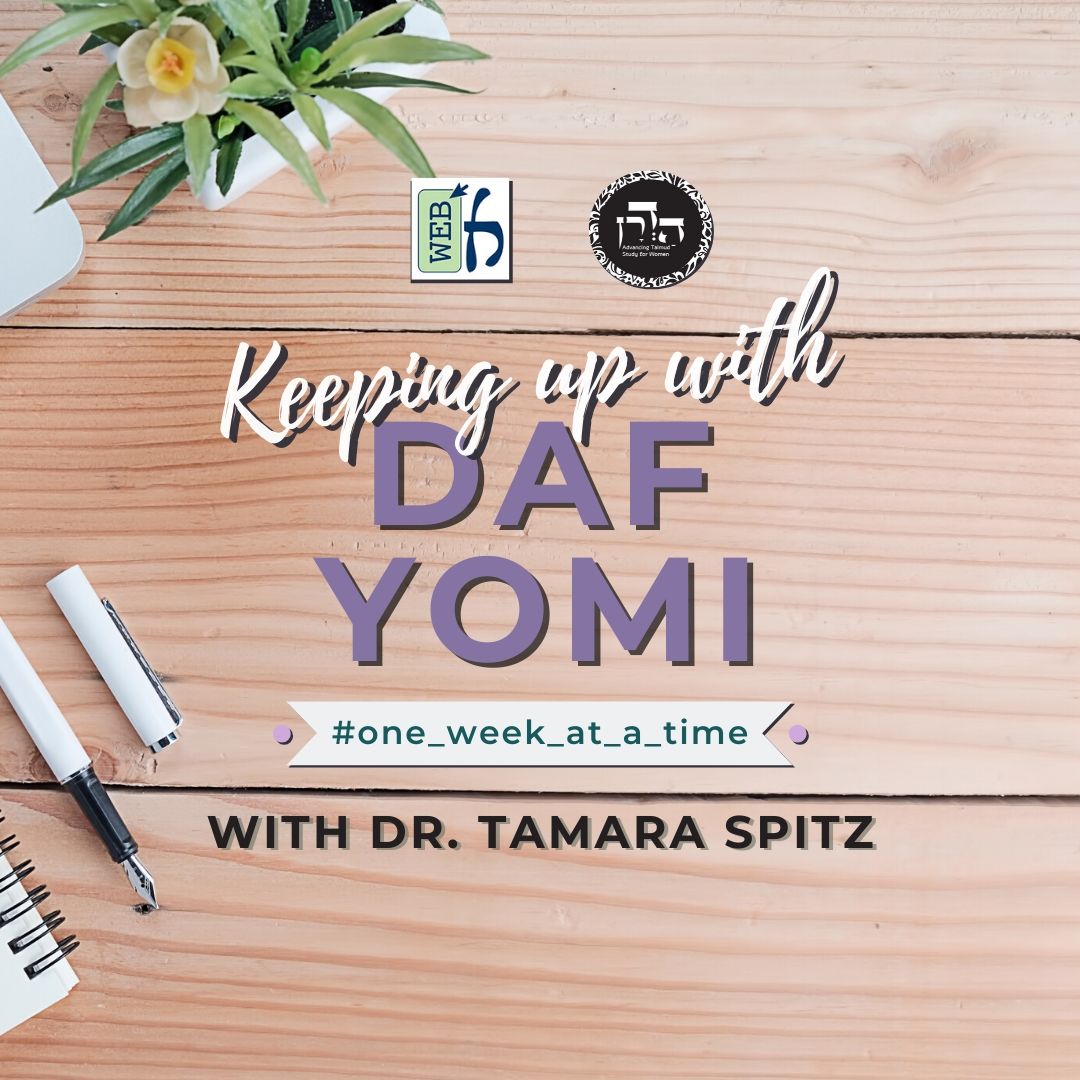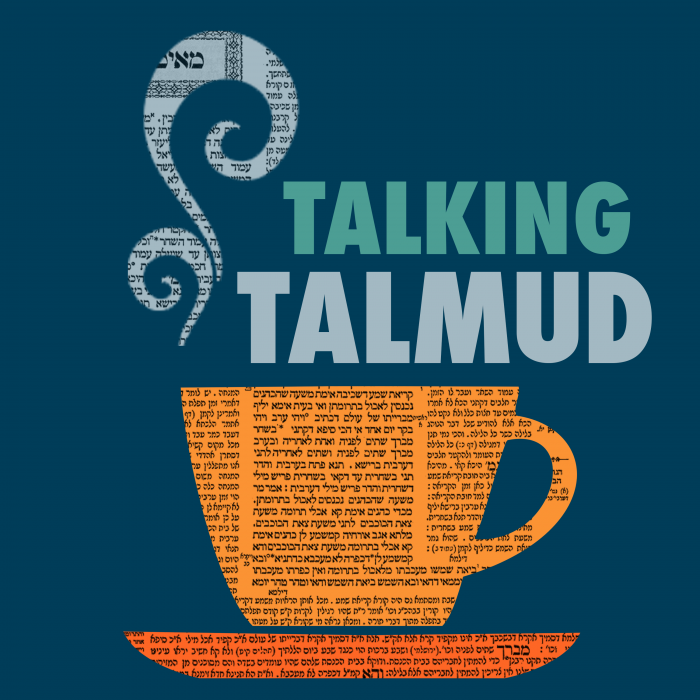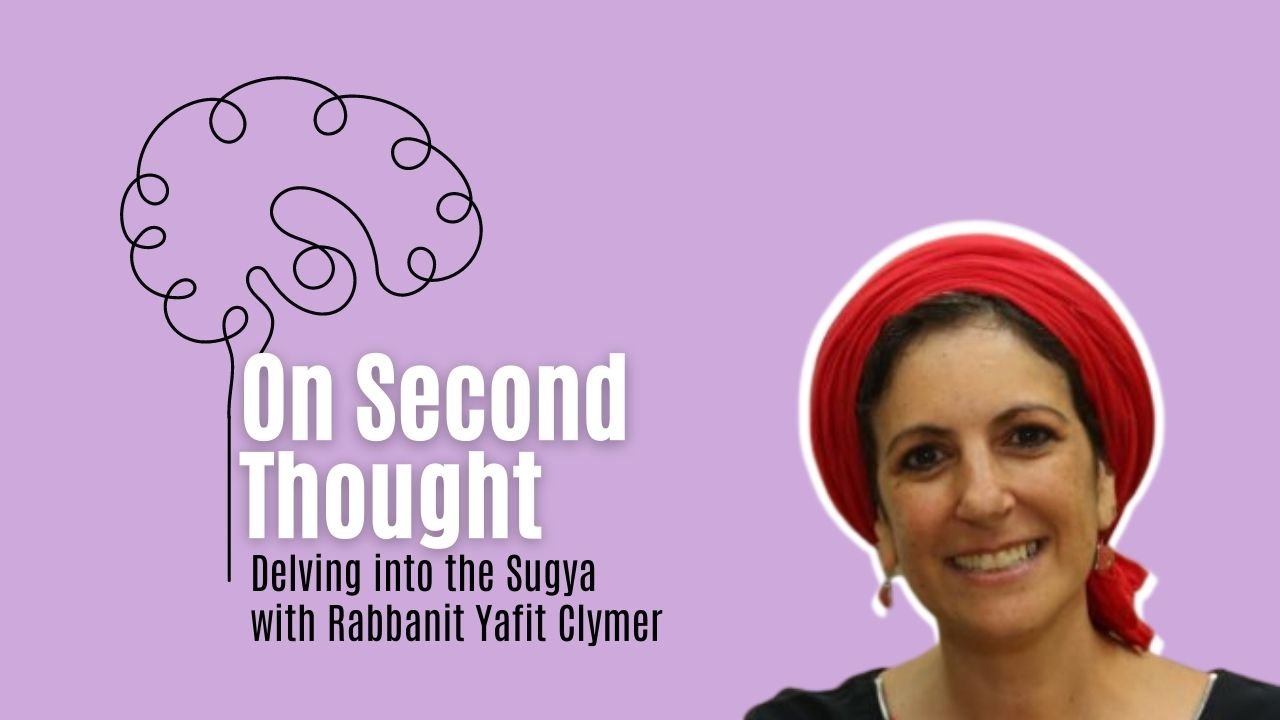When one wants to dissolve a vow, one goes to a chacham and they can suggest possible reasons why one would never have made the vow in the first place had they known something that… This is called a petach. There is a debate between Rabbi Eliezer and the rabbis whether is it possible to offer a petach regarding the honor of one’s father or mother (if you had known that your vow would have a negative effect on how people look at your father/mother…) and for something that was not in the world at the time of the vow and was not expected (nolad). The rabbis forbid and raise a difficulty for Rabbi Eliezer that if they allow such a petach (for father and mother), one will also think that one can they will also allow an opening for respect of God and that surely that is impossible! Why is it impossible? There is a dispute between Abaye and Raba to explain. Rav Chisda brings a source to prove Rabbi Eliezer’s permitting nolad from God who permitted Moshe’s vow according to something that had not happened and was not expected: “For all the people who seek your soul have died.” The rabbis understand that they didn’t actually die, just became poor and if so, it is not a case of nolad. The Gemara cites a source that says there are four types of people who are likened to the dead – a person who has no children, a leper, a poor person and a blind person. What are the verses from which it can be proven that all of these are likened to the dead?
Want to dedicate learning? Get started here:


Summary
Today’s daily daf tools:
Today’s daily daf tools:
Delve Deeper
Broaden your understanding of the topics on this daf with classes and podcasts from top women Talmud scholars.
New to Talmud?
Check out our resources designed to help you navigate a page of Talmud – and study at the pace, level and style that fits you.
The Hadran Women’s Tapestry
Meet the diverse women learning Gemara at Hadran and hear their stories.
Nedarim 64
רַבִּי אֱלִיעֶזֶר אוֹמֵר: פּוֹתְחִין לְאָדָם בִּכְבוֹד אָבִיו וְאִמּוֹ, וַחֲכָמִים אוֹסְרִין.
MISHNA: Rabbi Eliezer says: When halakhic authorities are approached with regard to the dissolution of a vow, they may broach dissolution with a person who took a vow by raising the issue of how taking the vow ultimately degraded the honor of his father and mother, asking him the following: Had you known that your parents would experience public shame due to your lax attitude toward your vow, would you still have taken the vow? But the Rabbis disagree with Rabbi Eliezer and prohibit broaching dissolution of a vow with this particular question.
אָמַר רַבִּי צָדוֹק: עַד שֶׁפּוֹתְחִין לוֹ בִּכְבוֹד אָבִיו וְאִמּוֹ, יִפְתְּחוּ לוֹ בִּכְבוֹד הַמָּקוֹם, אִם כֵּן — אֵין נְדָרִים! מוֹדִים חֲכָמִים לְרַבִּי אֱלִיעֶזֶר בְּדָבָר שֶׁבֵּינוֹ לְבֵין אָבִיו וְאִמּוֹ, שֶׁפּוֹתְחִין לוֹ בִּכְבוֹד אָבִיו וְאִמּוֹ.
To support the opinion of the Rabbis, Rabbi Tzadok said: Instead of broaching dissolution with him by raising the issue of the honor of his father and mother, let them broach dissolution with him by raising the issue of the honor of the Omnipresent. They should point out that a vow taken in the name of God lessens the honor of God, so they could ask him: If you had known that your vow would diminish the honor of God, would you have taken your vow? And if so, if this is a valid method of broaching dissolution, there are no vows. Nevertheless, the Rabbis concede to Rabbi Eliezer with regard to a vow concerning a matter that is between him and his father and mother, that they may broach dissolution with him by raising the issue of the honor of his father and mother, as in this case the extenuation is connected to this particular vow.
וְעוֹד אָמַר רַבִּי אֱלִיעֶזֶר: פּוֹתְחִין בַּנּוֹלָד, וַחֲכָמִים אוֹסְרִין. כֵּיצַד? אָמַר: ״קֻוֽנָּם שֶׁאֲנִי נֶהֱנֶה לְאִישׁ פְּלוֹנִי״ וְנַעֲשָׂה סוֹפֵר, אוֹ שֶׁהָיָה מַשִּׂיא אֶת בְּנוֹ, וְאָמַר: ״אִילּוּ הָיִיתִי יוֹדֵעַ שֶׁהוּא נַעֲשֶׂה סוֹפֵר אוֹ שֶׁהָיָה מַשִּׂיא אֶת בְּנוֹ בְּקָרוֹב — לֹא הָיִיתִי נוֹדֵר״.
And Rabbi Eliezer further said: They may broach dissolution by asking about a new situation, but the Rabbis prohibit it. How might they broach dissolution by asking about a new situation? If one said: It is forbidden to me like an offering [konam] that I will therefore not derive benefit from so-and-so, and that person later became a scribe [sofer], and the one who took the vow now requires his services, or if the one forbidden by the vow was marrying off his son and prepared a feast for all the residents of his town, and the one that had taken the vow said: Had I known that he would become a scribe, or that he would be marrying off his son in the near future, I would not have vowed.
״קֻוֽנָּם לְבַיִת זֶה שֶׁאֲנִי נִכְנָס״ וְנַעֲשָׂה בֵּית הַכְּנֶסֶת, אָמַר: ״אִילּוּ הָיִיתִי יוֹדֵעַ שֶׁהוּא נַעֲשָׂה בֵּית הַכְּנֶסֶת — לֹא הָיִיתִי נוֹדֵר״. רַבִּי אֱלִיעֶזֶר מַתִּיר, וַחֲכָמִים אוֹסְרִין.
The mishna cites another example of a new situation. If one said: Entering this house is konam for me, and that house became a synagogue, and he said: Had I known that it would become a synagogue, I would not have vowed, in this and all such cases Rabbi Eliezer permits the halakhic authority to use this as a basis for the dissolution of the vow, and the Rabbis prohibit it.
גְּמָ׳ מַאי ״אֵין נְדָרִים״? אָמַר אַבָּיֵי: אִם כֵּן, אֵין נְדָרִים נִיתָּרִין יָפֶה.
GEMARA: The Gemara clarifies the meaning of the statement made by Rabbi Tzadok. What does: If so, there are no vows, mean? Abaye said: It means: If so, vows are not dissolved properly. The one who took the vow might say he regrets doing so only because he is not willing to publicly state that he would have taken his vow despite knowing that it diminishes the honor of God. He may not actually regret having taken the vow, and this will lead to the improper dissolution of the vow.
וְרָבָא אָמַר: אִם כֵּן אֵין נְדָרִים נִשְׁאָלִין לְחָכָם.
And Rava said: It means: If so, there are no requests for the dissolution of vows to a halakhic authority. Since this type of extenuation applies to all vows, people will therefore assume that their vows are automatically dissolved, and will not take the required steps to dissolve them.
תְּנַן: וּמוֹדִין חֲכָמִים לְרַבִּי אֱלִיעֶזֶר בְּדָבָר שֶׁבֵּינוֹ לְבֵין אָבִיו וְאִמּוֹ, שֶׁפּוֹתְחִים לוֹ בִּכְבוֹד אָבִיו וְאִמּוֹ. בִּשְׁלָמָא לְאַבָּיֵי דְּאָמַר: אִם כֵּן אֵין נְדָרִים נִיתָּרִין, הָכָא כֵּיוָן דְּאִיחֲצַף לֵיהּ — הָא אִיחֲצַף לֵיהּ.
The Gemara analyzes the dispute between Abaye and Rava: We learned in the mishna: And the Rabbis concede to Rabbi Eliezer with regard to a vow concerning a matter that is between him and his father and mother, that they may broach dissolution with him by raising the issue of the honor of his father and mother. Granted, according to Abaye, who said: If so, vows are not dissolved properly, here, since he was impudent toward him by stating a vow that subjects his parent to a prohibition, he was impudent toward him and has demonstrated that he is not concerned for their honor. In such a case, there is no concern that he would pretend to regret his vow due to his parents’ honor. This is why the Rabbis concede to Rabbi Eliezer.
אֶלָּא לְרָבָא, דְּאָמַר: אִם כֵּן אֵין נְדָרִים נִשְׁאָלִין לְחָכָם, הָכָא אַמַּאי פּוֹתְחִין? אָמְרִי: כֵּיוָן דְּכֹל נִדְרֵי לָא סַגִּיא לְהוֹן דְּלָאו חָכָם — הָכָא נָמֵי פּוֹתְחִין.
But according to Rava, who said: If so, there are no requests for dissolution made to a halakhic authority, here, in the case of one whose vow involves his parents, why may they broach dissolution in this way? Why is there not a concern that people will assume that this dissolves all vows automatically? The Gemara answers: The Sages say in response: Since it is not sufficient and applicable for all vows not to request dissolution from a halakhic authority, because the Rabbis maintain that in general, the honor of one’s parents cannot be used to broach dissolution, here too, they may broach dissolution by invoking the honor of a parent. There is no concern that this may lead one to think that vows are dissolved automatically, as this extenuation applies only to this particular vow.
וְעוֹד אָמַר רַבִּי אֱלִיעֶזֶר פּוֹתְחִין בַּנּוֹלָד כּוּ׳. מַאי טַעְמָא דְּרַבִּי אֱלִיעֶזֶר? אָמַר רַב חִסְדָּא: דְּאָמַר קְרָא ״כִּי מֵתוּ כׇּל הָאֲנָשִׁים״ — וְהָא מִיתָה דְּנוֹלָד הוּא, מִכָּאן שֶׁפּוֹתְחִין בַּנּוֹלָד.
§ The mishna teaches: And Rabbi Eliezer further said: They may broach dissolution by asking about a new situation, but the Rabbis prohibit it. The Gemara inquires: What is the reason of Rabbi Eliezer? Rav Ḥisda said: For the verse states that God told Moses he could return to Egypt from Midian, despite having vowed to Yitro that he would not do so: “For all the men are dead that sought your life” (Exodus 4:19), and he took the vow only because it would be dangerous for him to return to Egypt. The Gemara explains the proof: But death is a new circumstance, and Moses’ vow was dissolved based on the men dying. Therefore, it can be understood from here that they may broach dissolution by asking about a new situation.
וְרַבָּנַן מַאי טַעְמַיְיהוּ? קָסָבְרִי: הָנְהוּ מִי מָיְיתִי? וְהָא אָמַר רַבִּי יוֹחָנָן מִשּׁוּם רַבִּי שִׁמְעוֹן בֶּן יוֹחַי: כׇּל מָקוֹם שֶׁנֶּאֱמַר ״נִצִּים״ וְ״נִצָּבִים״, אֵינָן אֶלָּא דָּתָן וַאֲבִירָם. אֶלָּא אָמַר רֵישׁ לָקִישׁ: שֶׁיָּרְדוּ מִנִּכְסֵיהֶן.
The Gemara asks: And as for the Rabbis, what is their reason for not accepting this proof? The Gemara answers: They hold: These people who were seeking Moses’ life, had they indeed died? But Rabbi Yoḥanan said in the name of Rabbi Shimon ben Yoḥai: Wherever it is stated in the Torah the term striving (Exodus 2:13), in reference to the men who slandered Moses, or standing (Exodus 5:20), in reference to those who complained against Moses and Aaron, they are none other than Dathan and Abiram. Dathan and Abiram were alive during the rebellion of Korah, which occurred years later, so they could not have been dead when God instructed Moses to return to Egypt. Rather, Reish Lakish said: They did not literally die, but the verse means that they lost their property and their status in the community, which meant their opinions were no longer granted credibility, and consequently, Moses could safely return to Egypt. Such a turn of events is not considered to be a new circumstance.
אָמַר רַבִּי יְהוֹשֻׁעַ בֶּן לֵוִי: כׇּל אָדָם שֶׁאֵין לוֹ בָּנִים — חָשׁוּב כְּמֵת, שֶׁנֶּאֱמַר: ״הָבָה לִּי בָנִים וְאִם אַיִן מֵתָה אָנֹכִי״. וְתַנְיָא, אַרְבָּעָה חֲשׁוּבִין מֵת: עָנִי, וּמְצוֹרָע, וְסוֹמֵא, וּמִי שֶׁאֵין לוֹ בָּנִים. עָנִי — דִּכְתִיב: ״כִּי מֵתוּ כׇּל הָאֲנָשִׁים״. מְצוֹרָע — דִּכְתִיב: ״אַל נָא תְהִי כַּמֵּת״. וְסוֹמֵא — דִּכְתִיב: ״בְּמַחֲשַׁכִּים הוֹשִׁיבַנִי כְּמֵתֵי עוֹלָם״. וּמִי שֶׁאֵין לוֹ בָּנִים — דִּכְתִיב: ״הָבָה לִּי בָנִים וְאִם אַיִן מֵתָה אָנֹכִי״.
The Gemara relates: Rabbi Yehoshua ben Levi said: Any person who does not have children is considered like a dead person. The source is as is stated in the words Rachel said to Jacob: “Give me children, or else I am dead” (Genesis 30:1). And it was taught in a baraita: Four are considered as if they were dead: A pauper, and a leper, and a blind person, and one who has no children. A pauper, as it is written: “For all the men are dead” (Exodus 4:19). As explained above, they were not actually dead but had descended into poverty, and yet they were considered dead. A leper, as it is written that Aaron said to Moses with regard to Miriam’s leprosy: “Let her not, I pray, be as one dead” (Numbers 12:12). And a blind person, as it is written: “He has made me to dwell in dark places, as those that have been long dead” (Lamentations 3:6). And one who has no children, as it is written: “Give me children, or else I am dead” (Genesis 30:1).
























